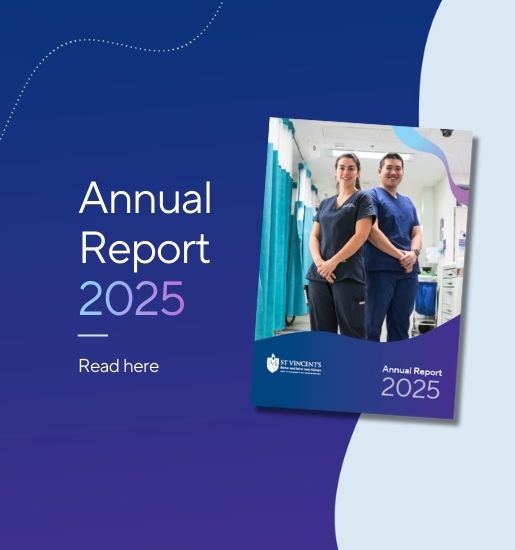St Vincent’s today is Australia’s largest not-for-profit provider of health and aged care services. As a microcosm of Australia’s health and aged care system we are uniquely positioned to lead and respond to our rapidly changing environment.
As a public not for profit organisation, St Vincent’s publishes detailed annual reports every year.
Our year in review: 2025 Annual Report
For more than 165 years, St Vincent’s has been inspired by the spirit of the Sisters of Charity to deliver compassionate and excellent care. 2024-2025 has been no exception.
We have recorded a year of incredible progress and dedication to patients and residents – at all times focused on delivering our Mission and increasing our reach to those most vulnerable.
From responding to Tropical Cyclone Alfred, to pioneering world-leading surgical techniques, to delivering a game changing national mental health care service and launching the Bringing Care Home Strategy, this year has exemplified how why St Vincent’s is a leader in responding to health and aged care needs with compassion and dedication.



